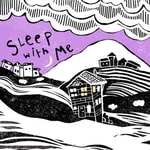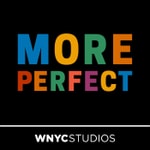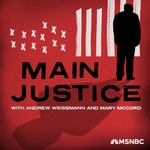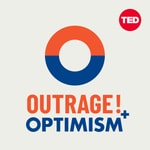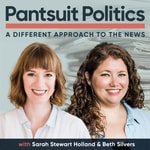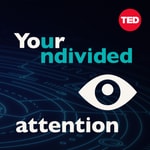Democracy Decoded – Détails, épisodes et analyse
Détails du podcast
Informations techniques et générales issues du flux RSS du podcast.
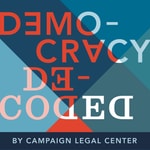
Democracy Decoded
Campaign Legal Center
Fréquence : 1 épisode/32j. Total Éps: 37

Classements récents
Dernières positions dans les classements Apple Podcasts et Spotify.
Apple Podcasts
🇺🇸 États-Unis - government
01/05/2025#98🇺🇸 États-Unis - government
23/11/2024#94🇺🇸 États-Unis - government
21/11/2024#98🇺🇸 États-Unis - government
19/11/2024#87🇺🇸 États-Unis - government
18/11/2024#96🇺🇸 États-Unis - government
14/11/2024#97🇺🇸 États-Unis - government
13/11/2024#68🇺🇸 États-Unis - government
10/11/2024#98🇺🇸 États-Unis - government
09/11/2024#92🇺🇸 États-Unis - government
07/11/2024#98
Spotify
Aucun classement récent disponible
Liens partagés entre épisodes et podcasts
Liens présents dans les descriptions d'épisodes et autres podcasts les utilisant également.
See all- http://vote.org/
48 partages
- https://www.democracygroup.org/
23 partages
- http://twitter.com/PeopleDecidePod
6 partages
Qualité et score du flux RSS
Évaluation technique de la qualité et de la structure du flux RSS.
See allScore global : 79%
Historique des publications
Répartition mensuelle des publications d'épisodes au fil des années.
Democracy Decoded, Season 4: The U.S. Election System Explained
Saison 4
mardi 3 septembre 2024 • Durée 02:03
American elections work because we have tried-and-tested systems in place to make sure votes are cast fairly and counted correctly, and that when threats arise, everyone has their part to play: lawmakers, poll workers, voting rights advocates, and everyday voters alike.
To understand how our elections continue to evolve, this season of Democracy Decoded takes a deep dive into our electoral system, exploring the checks and balances that make the process safe, secure, and accurate.
Host Simone Leeper will investigate the ways in which Congress took action after the January 6th attack on the U.S. Capitol to update an outmoded election law. She’ll also meet election workers who persevered through the thorny 2020 election, help you better understand your rights as a voter, learn how AI is impacting our democracy, and so much more.
This season of Democracy Decoded will equip you, the American voter, with insights that will empower you to participate fully in our democracy. Join us in this timely journey, and stay up to date on every episode: follow us on Apple Podcasts, Spotify, or wherever you listen to podcasts.
Bonus: Peeling Back the Curtain on Local Government
Saison 3
mardi 25 juin 2024 • Durée 26:34
In this bonus episode we’re featuring content from one of our favorite podcasts called “When the People Decide”. Host Jenna Spinelle explores what happens when neighbors and local government work together to make their communities stronger and more inclusive.
The episode takes place in Decatur, Georgia and tells the story of “Decatur 101” a straightforward class open to anyone in Decatur to learn about how their city government worked.
We hear from Linda Harris, the originator of the class, and Decatur 101 participants about why understanding how your government works, empowers you to begin advocating for changes you want to see in your community.
Links
https://www.thepeopledecide.show/ (When the People Decide website)
@PeopleDecidePod (When the People Decide Twitter)
About CLC
Democracy Decoded is a production of Campaign Legal Center, a nonpartisan nonprofit organization which advances democracy through law at the federal, state and local levels, fighting for every American’s right to responsive government and a fair opportunity to participate in and affect the democratic process. You can visit us on the web at campaignlegalcenter.org.
About The Democracy Group
Democracy Decoded is part of The Democracy Group, a network of podcasts that examines what’s broken in our democracy and how we can work together to fix it.
Bonus: Diverse Women in Politics
Saison 2
jeudi 6 juillet 2023 • Durée 36:03
In this bonus episode we’re featuring content from our friends at Future Hindsight, an award-winning podcast that takes big ideas about civic life and democracy and turns them into action items for all of us.
Host Mila Atmos is passionate about unlocking the power of everyday citizens, and each week you can join her on the show as she zeroes in on what you can do to get engaged and stay engaged.
In this episode, Mila Atmos interviews Kelly Dittmar, the Director of Research at the Center for American Women and Politics at Rutgers University about why diversity among women serving in public office strengthens our democracy, and how we can support more women to run in and win elections.
Links
https://www.futurehindsight.com/ (Future Hindsight website)
“Updating the FEC Candidate Salary Rule Could Help Increase Diversity in Office” (Campaign Legal Center)
About CLC
Democracy Decoded is a production of Campaign Legal Center, a nonpartisan nonprofit organization which advances democracy through law at the federal, state and local levels, fighting for every American’s right to responsive government and a fair opportunity to participate in and affect the democratic process. You can visit us on the web at campaignlegalcenter.org.
About The Democracy Group
Democracy Decoded is part of The Democracy Group, a network of podcasts that examines what’s broken in our democracy and how we can work together to fix it.
Special Announcement: We've been nominated for a Webby!
Saison 2
jeudi 13 avril 2023 • Durée 01:34
We are beyond thrilled to announce that our podcast “Democracy Decoded” has been nominated for a Webby Award in the category of Public Service & Activism podcasts!
How to vote:
- Click the green “vote” button under Democracy Decoded.
- Register with the Webby Awards website when prompted.
- Check your email for an email from Webby that says “Action Required” and click the green “verify your account” button.
That’s it, you’re done! Thank you!
A Fight for the Right to Vote
Saison 2 · Épisode 5
mardi 13 décembre 2022 • Durée 23:21
The 2020 election was…unique. Due to the COVID-19 pandemic, many states took steps to make voting safer and more accessible. After that, we saw a backlash and some states erected barriers to voting access. The 2022 midterm election then offered an opportunity to assess our voting landscape. In this episode, we discuss what we learned from the 2020 presidential election, the 2022 midterms, and how we can work together to make the promise of democracy real for us all.
Host and Guests:
Simone Leeper litigates a wide range of redistricting-related cases at CLC, challenging gerrymanders and advocating for election systems that guarantee all voters an equal opportunity to influence our democracy. Prior to arriving at CLC, Simone was a law clerk in the office of Senator Ed Markey and at the Library of Congress, Office of General Counsel. She received her J.D. cum laude from Georgetown University Law Center in 2019 and a bachelor’s degree in political science from Columbia University in 2016.
Trevor Potter is the founder and President of Campaign Legal Center. He leads CLC in its efforts to advance democracy through law. A Republican former Chairman of the Federal Election Commission (FEC), Trevor was general counsel to John McCain’s 2000 and 2008 presidential campaigns and an adviser to the drafters of the McCain-Feingold campaign finance law. To many, he is perhaps best known for his recurring appearances on The Colbert Report as the lawyer for Stephen Colbert’s super PAC, Americans for a Better Tomorrow, Tomorrow, during the 2012 election, a program that won a Peabody Award for excellence in reporting on money in politics. Trevor has provided testimony and written statements to Congress on federal election proposals, campaign finance regulation and, recently, the effects of the January 6th attack on our democracy. He has also taught campaign finance law at the University of Virginia School of Law and Oxford University, and he has appeared widely in national broadcast and print media. During the 2020 election season, Trevor was named to the cross-partisan National Task Force on Election Crises.
Aseem Mulji is Legal Counsel for Redistricting at Campaign Legal Center. He litigates voting rights, redistricting and campaign finance cases, and supports advocacy efforts to improve democracy at the federal, state and local levels. Aseem previously worked at the Participatory Budgeting Project, where he supported efforts to expand participatory democracy in the U.S. At CLC, Aseem has served as counsel in voting rights and redistricting cases such as TN NAACP v. Lee (M.D. Tenn.), VoteAmerica v. Schwab (D. Kans.), and Soto Palmer v. Hobbs (W.D. Wash.). He supports CLC’s actions against the Federal Election Commission for failures to enforce campaign finance laws. He also works to advance various democracy reforms, including state-level voting rights acts, ranked-choice voting, public financing and measures to ensure ballot access for justice-involved voters.
Derek Perkinson is the New York State Field Director and Crisis Director for the National Action Network (NAN). He oversees NAN’s advocacy and organizing efforts throughout the state of New York, the thirteen New York City chapters and coordinates national crisis concerns. Derek was recently a part of the coalition which helped bring about the John R. Lewis Voting Rights Act of New York. He has moderated and served as a panelist on numerous occasions to speak up against discriminatory practices. Before joining NAN, Derek worked at the Black Institute – a think tank and nonprofit advocacy organization – where he served as the Chief Community Organizer in their New York City office. He has years of experience organizing communities of color to advocate and engage in political campaigns, criminal justice reform, economic justice, census, and voting rights, civic engagement, and immigration policy.
Gilda Daniels is a Voting Rights Consultant for Campaign Legal Center. She provides her expertise and support on CLC's Voting Rights cases. Gilda has served as a deputy chief in the Department of Justice, Civil Rights Division, Voting Section, in both the Clinton and Bush administrations. She has more than a decade of voting rights experience, bringing cases that involved various provisions of the Voting Rights Act, the National Voter Registration Act and other voting rights statutes. Before beginning her voting rights career, Gilda was a staff attorney with the Southern Center for Human Rights, representing death row inmates and bringing prison condition cases.
Links:
New York Joins Other States in Enacting State-Level Voting Rights Act (Campaign Legal Center)
Virtual Event Video — Barriers to the Ballot Box: A Conversation with Author Gilda Daniels (Campaign Legal Center)
Ranked Choice Voting (Campaign Legal Center)
About CLC:
Democracy Decoded is a production of Campaign Legal Center, a nonpartisan nonprofit organization which advances democracy through law at the federal, state and local levels, fighting for every American’s right to responsive government and a fair opportunity to participate in and affect the democratic process. You can visit us on the web at campaignlegalcenter.org.
What If I Want to Vote in Person?
Saison 2 · Épisode 4
mardi 6 décembre 2022 • Durée 27:25
Voting in person is still the most popular way to vote for many people. Whether it’s a personal preference, a cultural experience in one's community, or an opportunity to get help from poll workers, millions of Americans head to the polls in person on the first Tuesday in November. In this episode we learn about the history of Election Day (seriously, why a weekday in late fall?) and the challenges that many Americans face when they try to vote in person.
Host and Guests:
Simone Leeper litigates a wide range of redistricting-related cases at CLC, challenging gerrymanders and advocating for election systems that guarantee all voters an equal opportunity to influence our democracy. Prior to arriving at CLC, Simone was a law clerk in the office of Senator Ed Markey and at the Library of Congress, Office of General Counsel. She received her J.D. cum laude from Georgetown University Law Center in 2019 and a bachelor’s degree in political science from Columbia University in 2016.
Valencia Richardson is Legal Counsel for Voting Rights at Campaign Legal Center. Her work focuses on addressing local-level election compliance under the Voting Rights Act in the Deep South. Prior to joining CLC, Valencia was a voting rights organizer and activist. Before law school, Valencia was a Fulbright grantee to Mexico and a student voting rights organizer for the Andrew Goodman Foundation, for which she served as a board member. She is the author of a nonfiction book, “Young and Disaffected,” and published “Voting While Poor: Reviving the Twenty-Fourth Amendment and Eliminating the Modern-Day Poll Tax” in the Georgetown Journal on Poverty Law and Policy. Valencia has litigated various voting rights cases in state and federal court, including Pascua Yaqui v. Rodriguez, Pettaway v. Galveston County, as well as Aguilar v. Yakima County, the first case litigated under the Washington Voting Rights Act.
Samantha Kelty is a Staff Attorney with the Native American Rights Fund in its Washington, DC, office. Samantha litigates to eliminate obstacles to voting faced by Native Americans. At NARF, she has successfully litigated or settled major victories for Native American voting rights, including securing compliance with the National Voter Registration Act in South Dakota, ballot assistance in Montana and Nevada, ballot receipt extension deadlines in Nevada, and on-reservation polling places in Montana and Nevada. She also represented amicus curiae National Congress of American Indians before the United States Supreme Court in advocating for the use of ballot collection and equal access by Native American voters under Section 2 of the Voting Rights Act. In addition to litigation, she is a member of the Native American Voting Rights Coalition, a nationwide alliance of advocates, lawyers, academics, and tribal representatives that addresses Native American voting issues nationwide.
Terry Ao Minnis is the senior director of the census and voting programs for Asian Americans Advancing Justice | AAJC. Terry is a widely respected authority on voting rights. She was one of the key leaders in the campaigns to reauthorize the Voting Rights Act in 2006 as well as to address the Supreme Court's decision in Shelby County v. Holder. Appointed to the American Bar Association’s Standing Committee on Elections in 2020, Terry was named one of the four living 2020 National Women’s History Alliance Honorees: Valiant Women of the Vote. She is one of NOW’s 100 Sisters of Suffrage as part of their celebration of the centennial anniversary of the passage of the 19th amendment.
Links:
Voting Must Be Accessible (Campaign Legal Center)
Why the U.S. Needs Equitable Access to In-Person Voting (Campaign Legal Center)
Giving Voters Time Off To Vote Would Help Promote Fair Representation (Campaign Legal Center)
Fair Fight Action v. Raffensperger (Campaign Legal Center)
Native Voters Still Face Obstacles, White House Outlines a Path Forward (Campaign Legal Center)
Securing Safe Voting Options on the Pascua Yaqui Reservation (AZ) (Campaign Legal Center)
About CLC:
Democracy Decoded is a production of Campaign Legal Center, a nonpartisan nonprofit organization which advances democracy through law at the federal, state and local levels, fighting for every American’s right to responsive government and a fair opportunity to participate in and affect the democratic process. You can visit us on the web at campaignlegalcenter.org.
What If I Can’t Vote in Person?
Saison 2 · Épisode 3
mardi 29 novembre 2022 • Durée 20:21
Voting at a polling place on Election Day may be easy for some, but many voters face significant challenges. Transportation, work schedules, and the location of polling places can make it tough for voters with families, jobs, a disability, and more to vote in person.
During the 2020 presidential election, when the COVID-19 pandemic was in full force, many states expanded vote-by-mail access to protect voters from getting sick. There were also drive-thru voting and ballot drop-boxes, which opened many voters’ eyes to how accessible voting could be.
In this episode we look at how vote-by-mail works, why it’s secure and accurate and how it helps more voters make their voice heard.
Host and Guests:
Simone Leeper litigates a wide range of redistricting-related cases at CLC, challenging gerrymanders and advocating for election systems that guarantee all voters an equal opportunity to influence our democracy. Prior to arriving at CLC, Simone was a law clerk in the office of Senator Ed Markey and at the Library of Congress, Office of General Counsel. She received her J.D. cum laude from Georgetown University Law Center in 2019 and a bachelor’s degree in political science from Columbia University in 2016.
Reynaldo (Rey) Valenzuela has been working in the field of elections for over 32 years. He currently serves as the Director of Mail-In Voting and Election Services for Maricopa County, Arizona that presently serves over 2.4 million registered voters. He supports the administration of several election processes to include the candidate/campaign filing division, customer service division, early voting department, and shared oversight of the tabulation process. Rey serves or has served on various election related panels for various organizations to include as a local election official representative for Arizona on the Bipartisan Policy Center (BPC) or as a deputy member of the Election Officials of Arizona (EOA) Association. He also served for 15 years as one of the two Representatives from Arizona on the Election Assistance Commission Standards Board.
Jonathan Diaz is Senior Legal Counsel for Voting Rights at Campaign Legal Center. He litigates voting rights cases on behalf of voters across the United States, and works to advance laws and policies that expand the freedom to vote for all Americans. Before joining CLC, Jonathan was a litigation associate in the New York office of Jenner & Block LLP, where he litigated a variety of civil and criminal matters. He represents voting rights plaintiffs and amici in numerous cases, including Raysor v. Lee, VoteAmerica v. Raffensperger, Thompson v. Alabama and Brnovich v. DNC. Jonathan also participates on behalf of CLC on a number of democracy reform coalitions, coordinating CLC's work with partner organizations at the national, state and local levels. He also frequently provides commentary on voting rights and election law issues in the media; he has been quoted in publications including the New York Times, the Miami Herald and ProPublica, and has appeared on Univision, NPR and CNN, where he was an election law analyst for the 2020 election cycle.
Michelle Bishop leads a team to support NDRN's national network on voting rights and voter engagement for people with disabilities. She also works in coalition with the civil rights community in Washington, DC to ensure strong federal policy regarding voting rights and election administration from a voter-centric and intersectional perspective. Michelle loves democracy so much that she registered to vote on her 18th birthday, even though it wasn’t an election year. It is ill-advised to get her started talking about the historical significance of the first peaceful transfer of the US presidency or the intricacies of the Electoral Count Act. Disabled herself, Michelle comes to NDRN with over 15 years experience in the disability vote.
Links:
Here’s Why You Should Have the Freedom To Vote By Mail (Campaign Legal Center)
Demystifying Vote-by-Mail for All Americans (Campaign Legal Center)
Combatting State-Level Bills Restricting The Freedom To Vote (Campaign Legal Center)
Voter Participation Nonprofits Are Crucial for Democracy. We Must Protect Their Work. (Campaign Legal Center)
About CLC:
Democracy Decoded is a production of Campaign Legal Center, a nonpartisan nonprofit organization which advances democracy through law at the federal, state and local levels, fighting for every American’s right to responsive government and a fair opportunity to participate in and affect the democratic process. You can visit us on the web at campaignlegalcenter.org.
Can I Vote?
Saison 2 · Épisode 2
mardi 22 novembre 2022 • Durée 22:31
The right to vote is a basic American freedom, but for people with felony convictions, figuring out if they can vote is a huge task. This episode looks at the history of felony disenfranchisement laws and explains how denying the freedom to vote to an entire class of citizens hurts voters, communities and our democracy. Also, Tennessee voters share their experiences regaining the freedom to vote after a felony conviction.
Host and Guests:
Simone Leeper litigates a wide range of redistricting-related cases at CLC, challenging gerrymanders and advocating for election systems that guarantee all voters an equal opportunity to influence our democracy. Prior to arriving at CLC, Simone was a law clerk in the office of Senator Ed Markey and at the Library of Congress, Office of General Counsel. She received her J.D. cum laude from Georgetown University Law Center in 2019 and a bachelor’s degree in political science from Columbia University in 2016.
Dawn Harrington is the founder and Executive Director of Free Hearts, an organization which was created to reunite families and keep families together by providing support, education, and advocacy, organizing families impacted by incarceration. During her time in prison, Dawn was disturbed by the impact of incarceration on families, especially moms and kids, and was inspired to make a difference upon her release. Today, Dawn is also Director of Special Projects of National Council for Incarcerated and Formerly Incarcerated Women and Girls, Just Leadership USA fellow, and advisory board member for Nashville Defenders and Unheard Voices Outreach. She has a Bachelor’s degree in Recording Industry Management and Public Relations from Middle Tennessee State University and a Master of Business Administration degree in Information Technology from Bethel University.
Blair Bowie manages CLC’s Restore Your Vote project, which focuses on ending felony disenfranchisement by democratizing access to rights restoration services and working with directly impacted communities to dismantle systemic barriers to the ballot box through advocacy, litigation and policy change. Prior to joining CLC, Blair worked for five years as an advocate and organizer with the aim of increasing political equality and accountability. As the democracy advocate with the U.S. Public Interest Research Group, she co-authored several reports on the post-Citizens United impact of money in politics, coordinated campaigns and messaging across the organization’s chapters, and served as its federal lobbyist on campaign finance reform.
Gicola Lane works directly with CLC's Restore Your Vote team to restore voting rights to people with past felony convictions through direct services, community empowerment and public education. Prior to joining CLC, Gicola served as a community organizer for more than five years for nonprofits, campaigns and grassroots groups. From 2018 to 2021, as a statewide organizer for Free Hearts, a Tennessee-based nonprofit led by formerly incarcerated women that organizes and provides support to families impacted by incarceration, Gicola trained hundreds of people across the state of Tennessee on the rights restoration process, and helped numerous people restore their right to vote.
Milton Thomas was born and raised in Nashville, Tennessee and now works as a maintenance worker at the Martha O’Bryan Center. The Martha O’Bryan Center is a faith-based organization which provides assistance to residents in Nashville experiencing poverty, and Milton enjoys being able to help his community through his job there. He is passionate about voting and has voted in every election since having his voting rights restored in 2020. He would like to thank Gicola Lane, Keeda Haynes, and Howard Gentry for being very instrumental in him getting his voting rights back. Milton is also the father of five children.
Links:
Success! Study Shows That CLC’s Restore Your Vote Outreach Increases Voter Participation (Campaign Legal Center)
CLC’s Restore Your Vote Toolkit Cited As Key Resource in DOJ Guide (Campaign Legal Center)
CLC Urges Federal Agencies To Offer Greater Assistance with Voting Rights Restoration (Campaign Legal Center)
About CLC:
Democracy Decoded is a production of Campaign Legal Center, a nonpartisan nonprofit organization which advances democracy through law at the federal, state and local levels, fighting for every American’s right to responsive government and a fair opportunity to participate in and affect the democratic process. You can visit us on the web at campaignlegalcenter.org.
Make Every Vote Count
Saison 2 · Épisode 1
mardi 15 novembre 2022 • Durée 22:04
America is a democracy, but is that democracy accessible to every American? When the Constitution was ratified, only white men who owned property could vote, which was only 6% of the population. In the more than 200 years since then, many Americans are still being denied the right to have a say in key decisions that impact our lives.
In this episode Simone talks with Brittany Carter from the NAACP Legal Defense Fund about the history of voting rights, and how African Americans risked their lives and safety for the freedom to vote. Then, CLC lawyers Paul Smith and Danielle Lang explain what voting access looks like today, and what barriers still exist for many Americans including people with disabilities, people of color and those with felony convictions.
Host and Guests:
Simone Leeper litigates a wide range of redistricting-related cases at CLC, challenging gerrymanders and advocating for election systems that guarantee all voters an equal opportunity to influence our democracy. Prior to arriving at CLC, Simone was a law clerk in the office of Senator Ed Markey and at the Library of Congress, Office of General Counsel. She received her J.D. cum laude from Georgetown University Law Center in 2019 and a bachelor’s degree in political science from Columbia University in 2016.
Paul Smith has four decades of experience litigating a wide range of cases. He has argued before the U.S. Supreme Court 21 times and secured numerous victories, including Lawrence v. Texas, the landmark gay rights case. In addition, Paul has argued several voting rights cases at the Supreme Court, including Vieth v. Jubelirer and Gill v. Whitford, involving partisan gerrymandering, LULAC v. Perry, involving the legality of Texas’s mid-decade redrawing of congressional districts and Crawford v. Marion County Election Board, involving the constitutionality of a voter identification law. Paul previously served as a partner in the law firm of Jenner & Block, where he was chair of the firm's Appellate and Supreme Court Practice and co-chair of the firm's Election Law and Redistricting Practice.
Danielle Lang has worked as a civil rights litigator her entire career and now leads CLC's voting rights team dedicated to safeguarding the freedom to vote. She has led litigation against Texas's racially discriminatory voter ID law, Florida's modern-day poll tax for rights restoration, Arizona's burdensome registration requirements, North Dakota's voter ID law targeting Native communities, and numerous successful challenges to signature match policies for absentee ballots. Previously, Danielle served as a Skadden Fellow in the Employment Rights Project of Bet Tzedek Legal Services in Los Angeles, where she represented low-wage immigrant workers in wage and hour, discrimination, and human trafficking matters. From 2012 to 2013, Danielle clerked for Judge Richard A. Paez on the U.S. Court of Appeals for the Ninth Circuit.
Brittany Carter is the Political Participation Fellow at LDF, focusing on voting rights litigation and voter protection efforts. She is a member of the legal team litigating Milligan v. Merrill, a high-profile case which was argued before the Supreme Court of the United States, charging that the congressional redistricting map drawn by the Alabama legislature denied Black residents equal opportunity to participate in the political process and elect candidates of choice. Prior to LDF, Brittany served as a law clerk to the Honorable Sam A. Lindsay of the U.S. District Court for the Northern District of Texas.
Links:
Voting Must Be Accessible (Campaign Legal Center)
To Make Elections Accessible, Modernize Voter Registration (Campaign Legal Center)
About CLC
Democracy Decoded is a production of Campaign Legal Center, a nonpartisan nonprofit organization which advances democracy through law at the federal, state and local levels, fighting for every American’s right to responsive government and a fair opportunity to participate in and affect the democratic process. You can visit us on the web at campaignlegalcenter.org.
Democracy Decoded is Back!
Saison 2
mardi 1 novembre 2022 • Durée 01:52
Why does American Democracy look the way it does today and how can we make it more responsive to the people it was formed to serve? Democracy Decoded, a podcast by Campaign Legal Center, examines our government and discusses innovative ideas that could lead to a stronger, more transparent, accountable and inclusive democracy. In the new season, host Simone Leeper covers everything you need to know about voting in the U.S. – how it works, what barriers exist to voting, and how to make our voting system more inclusive. Because our democracy works best, when every voter can participate.
